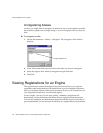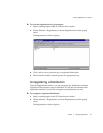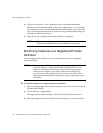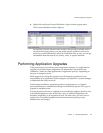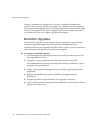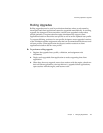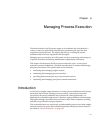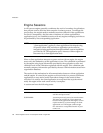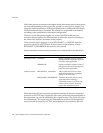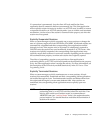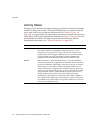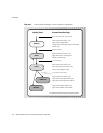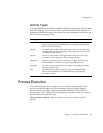
Introduction
158 iPlanet Integration Server • Process System Guide • August 2001
Engine Sessions
An iIS process engine generally coordinates the work of a number of applications
that perform various activities that comprise a business process. To manage this
process flow, the engine needs to maintain sessions with each of the applications
involved. Consequently, the first order of business of a client application or
application proxy is to establish a session with any engines managing activities to
be performed by the corresponding application.
When a client application attempts to open a session with an engine, the engine
must verify the authenticity of the application or user. This validation is performed
by the engine using logon information provided by the application or user and
validation code in the validation registered with the engine. This validation code
normally compares information provided by the user with information stored in an
organization database.
The session is the mechanism for all communication between a client application
and the engine. It is used by the engine to offer activities in a process to different
applications or users and to notify them about changes in the status of these
activities. It is used by the client application to accept activities to perform and
notify the engine when work on an activity is complete.
A session can have the following states:
NOTE In the remainder of this chapter—unless explicitly stated—the term
“client application” applies to client applications developed using
iIS process client APIs, and also to application proxies used to
integrate existing applications through backbone system capabilities
provided by iIS. The application proxy interacts with an engine in
the same way a client application does.
Session state Description
ACTIVE A session to which the engine can assign
activities and post events.
SUSPENDED A session previously active, but now dormant.
This state can result from a lost connection
between client application and engine, or from
explicit action by a system manager or client
application user. The engine cannot assign
new activities to a suspended session or post
events to it.



